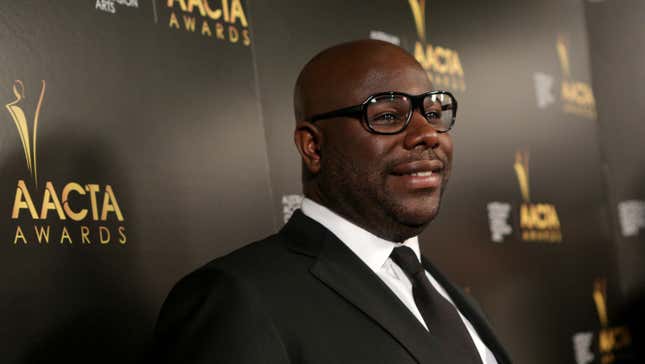
It’s African American Music Appreciation Month and filmmaker extraordinaire Steve McQueen certainly has an appreciation for music. In fact, he proved it by directing an entire Soundtrack of America.
Presented by the Shed, The Soundtrack of America showcased “emerging musicians and performing artists celebrating the unrivaled impact of African-American Music on contemporary culture” on Manhattan’s west side this past April, including works from artists such as Smino, Tank and The Bangas, Emily King, Sy Smith, Eryn Allen Kane, Moses Sumney, PJ Morton, and more.
Per the official press release:
The Shed is more than an “Arts Center,” it’s a creative space where originality intersects and artists of any discipline are uniquely presented for all audiences to enjoy. The Soundtrack of America was conceived and directed by Oscar-winning filmmaker, Steve McQueen and developed with music and educational luminaries that include Quincy Jones, Maureen Mahon, Dion “No I.D.” Wilson, Tunji Balogunand Greg Phillinganes.
“[We are in 2019], 400 years after the first people from Africa were brought to what became the United States,” Chief Academic Advisor for the Shed, Maureen Mahon told The Root. “I think it’s really significant at this moment to look back on the contributions that African-Americans have made in a number of fields. And music is certainly one of the most audible and visible locations where African-Americans have made a mark both in the United States and globally.”
Mahon additionally delved into Quincy Jones’ involvement noting the acclaimed producer “talked very passionately and forcefully about how important it is to keep these stories about the history of the music up front and in people’s minds.”
As a huge fan of McQueen’s work (really, I’ve seen them all and his style is unmatched and revered), I was thrilled to be able to chat with him on the phone about what sparked him to curate the five-day concert series, the impact music has on his filmmaking, and who he looks to in music as an inspiration.
For McQueen, the person who has made him witness the most poignant moments in music is the late Prince, who was born today, June 7, in 1958.
“As a black artist ... he did everything; he dressed the way he wanted, be [who] he wanted, [did] what he wanted to do, when and how he wanted to do it,” McQueen exclaimed. “That freedom about possibilities and ideas is fantastic. He never put himself in prison and said, ‘No I can’t do that’ ... he just did it. It was an incredible time, in the ’80s, when you were just waiting for a Prince album. It was pretty amazing.”
As a director known for his emotionally-wrought themes in films such as Widows, 12 Years a Slave, and Shame, it would make sense that McQueen would be just as inspired by an art form that embodies raw emotion: music. In fact, he calls African American music “one of the big forces of the world.” As such, the “seeds of Soundtrack of America” —as McQueen puts it—were birthed from his set experiences in New Orleans (12 Years a Slave) and Chicago (Widows) and not finding museums “of any significance” specifically dedicated to the history and impact of black music. It’s especially noteworthy, given the particular cities he was in are considered bastions of black music across genres such as jazz and blues.
Naturally, music is a huge part of McQueen’s filmmaking. In his most recent work Widows, the haunting sounds of Nina Simone and Sade added a special layer to a world steeped in mayhem and tension.
“I see in music,” McQueen proclaimed. “Sound is the most important element in film because it can transport you, it can transcend you to any given moment or any given mood.”
And through McQueen, black music is certainly seen. The Soundtrack of America, indeed.



